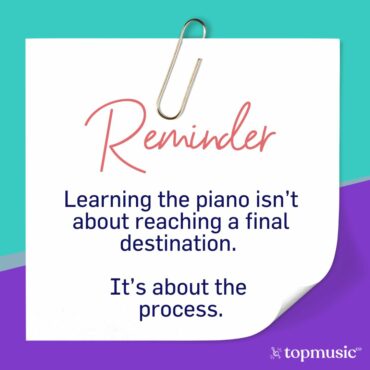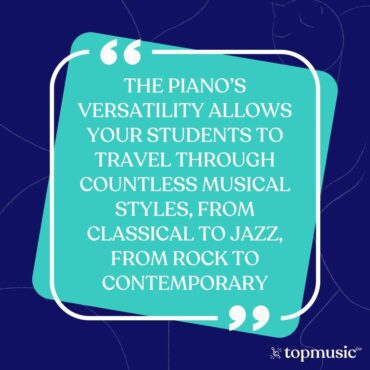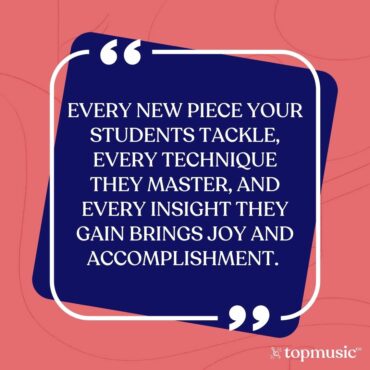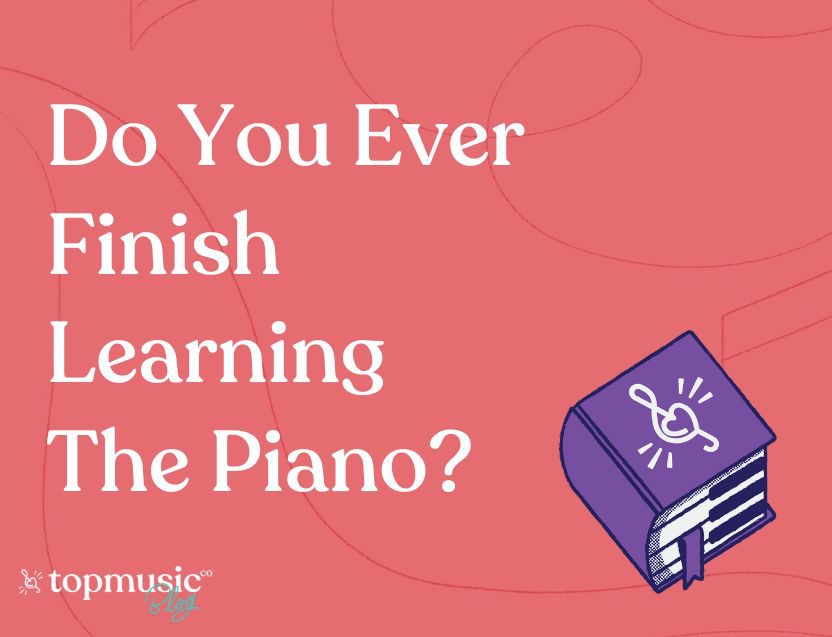Have you ever been asked by a student, “How long will it take for me to learn the piano?”
Learning the piano is a lifelong journey.
But why?
Do you ever finish learning the piano?
Have you ever been asked by a piano student, “How long will it take for me to learn the piano?”
They assume there’ll be an endpoint. Maybe even a piece that, when they can play, signals that they’ve mastered the piano.
If this were a video game, their skill bar for piano would be maxed out.
Yet, as they progress, your students realize there’s no “finish line.”
Learning the piano is a lifelong journey.
But why? Why is this a skill that your students (and you!) will keep building on year after year?
Table Of Contents:

Learning the piano isn’t about reaching a final destination. It’s about the process itself.
As your students advance, they’ll encounter new compositions, techniques, and genres that challenge and inspire them.
Similarly to how they will never read every book in the world, your students will only ever skim the surface of piano repertoire.
Every new piece they learn will open a gateway to another, and another, and another… Beckoning them to explore further.
New composers are born every day. New pieces are written every day.
Mastery of piano is, and always will be, an elusive and ever-moving target.
The piano’s versatility allows your students to travel through countless musical styles, from classical to jazz, from rock to contemporary.
Each style has its unique nuances and intricacies, encouraging your students to broaden their horizons continuously.

No doubt you’ve had students be surprised at the ability to play their favourite songs on the piano.
I had a student recently express a love for Billie Eilish, but she didn’t think any of her songs would translate well to piano. I showed her this video, and she was captivated. We’re now working our way through Billie Eilish’s songs!
Interpreting music is a deeply personal and ever-evolving art.
As your students grow as pianists and as people, their interpretations become richer, more nuanced, and emotionally profound.
The same piece played at different stages of their lives can evoke entirely different feelings and expressions.
Here’s an idea for an insightful studio-wide project: If you have any recordings or videos of student performances from years ago, revisit those pieces now and compare how the students played them then to how they play them now. They will be surprised and impressed at how much they’ve changed as musicians.
Related: Teaching Expression in Intermediate Historical Repertoire
Piano technique is a vast field. As your students progress, they’ll discover the nuances of touch, tone, and dynamics.
There’s no end to the refinement of their technical abilities!
Learning the piano isn’t just about music. It’s about mental fitness.
Studies have shown that playing an instrument can improve memory, concentration, and problem-solving skills. Engaging in lifelong piano learning keeps your students’ minds sharp and agile.
Every new piece your students tackle, every technique they master, and every insight they gain brings joy and accomplishment.
You might have students remark that learning the piano makes them feel special. The skill sets them apart from their non-musical friends and family members.
This joy of discovery and the allure of being part of the “exclusive piano players club” are testaments to the eternal allure of piano playing.
It’s a reminder that they’re a part of a grand tradition – one that has been cultivated for centuries!

Your students’ journeys as lifelong learners of the piano can be an inspiration to others.
As they continually pursue their passion, they set an example of dedication, growth, and the boundless potential of the human spirit.
When advanced pianists perform in recitals or events, they inspire beginner students. They show that there’s no “end” to playing the piano, and their love for the instrument can ignite the curiosity of those around them.
As we’ve said, learning the piano is a journey without an end. That’s the beauty of it.
Rather than focusing on a final destination, it’s about embracing the endless exploration of music, technique, and self-expression.
But it can be challenging for a teacher to know what to teach students who feel like they’re at “the end” of their piano path. How do you keep them engaged? What do you teach them to continue to push and inspire them?
Our new course, “Advancing Pianists,” is perfect for teachers with piano students nearing the advanced level. The course will give you all the foundational information you need to set up your students for continued success and enjoyment.
Covering topics from historical context, performance practice basics, and even suggestions for how to teach individual pieces, Janna Williamson will provide you with a fountain of inspiration and ideas for how your advanced students can continue enjoying learning the piano.
“Advancing Pianists” is available to Studio and Evolution members of TopMusicPro.
